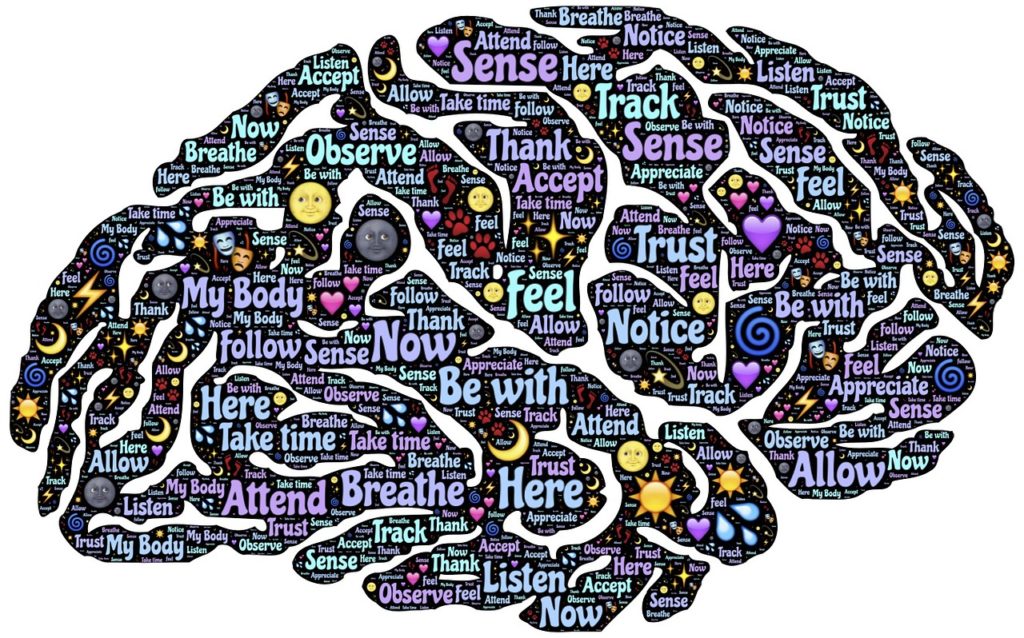Delusion – which is, by the way, something we all engage in and are subject to – is the psychological condition (or state) of having a distorted interpretation, even an outright misapprehension, of one’s perceived reality (a Rider problem) or conceptualized belief (an Elephant issue). Put simply, delusion, whether helpful or (more usually) harmful, is a case of “not getting the reality right.”
Denial – of that reality – is delusion’s handmaiden, an enabling mental coping mechanism that serves to blind our Rider from being conscious of, or feeling, or “having to think about,” that which is, or could be, disturbing, troublesome, even excruciatingly painful. Helping one to avoid pain or unnecessary suffering sounds rather beneficial, positive, and desirable. And of course it is helpful…as long as the reality (being denied) doesn’t result in some other hurt or harm (to oneself or others); or until one is able to adjust to, process, and either accept or reconcile the reality of what is or has happened.
But then being “in denial” is generally understood to mean it’s arguably dysfunctional, either preventing one from seeing what is for them problematic, or in enabling [a] false belief that may cause hurt and/or harm (to oneself or others).
In the ERM, delusion is an(other) Elephant-problem…and one that is (and there should be no surprise here) the Rider’s job to fix.
Now being deluded is not an exceptional [mental] state to inhabit; it is in fact a rather “normal” and sometimes preferred condition to assume…even as we know[3] that delusion may enable and promote(!) hurtful, potentially debilitating outcomes. And yes, generally speaking, being deluded – whether internally conjured or externally stimulated [4] – is usually not a good thing. In its most extreme (and thankfully rare) manifestations– as in “not seeing” or “denying” real dangers that are present in a given situation – delusion can result in serious harm, possibly even death.[5]
For delusion – and its potentiality – is also a common day-to-day experience, one driven mostly by our Elephant’s fears and insecurities…which 1) have been mostly learned and conditioned, 2) can be deep-seated, and 3) are nearly always “hidden” from the Rider’s attention or awareness. But having come to this realization (or becoming educated and aware of it, as you are now!), is what can empower your Rider to learn and apply psychological skills that mitigate, prevent, or even come to eliminate delusion and those “hurtful, potentially debilitating outcomes.” In other words, “Caveat Equitem!”[6]
______
Recall that the vast majority of our behaviors are reactions…which implies there’s little if any Rider/rational thinking involved in a lot (arguably most) of what we do. And yet even in those cases where there is some desire (i.e., proactive behavior, with some motivation at work) the Rider thinking involved tends to be directed at, and limited to, the “how to do” what we wish to have come about, while any other considerations – especially negative or potentially damaging outcomes – are “conveniently” ignored.
This is, in fact, one of the ways we delude ourselves – by our Rider either “choosing” not to think about other possibilities (because it may be unpleasant to do so and a psychological defense mechanism utilizing avoidance so easily “kicks in”) or…because we’ve never learned how to engage critical thinking skills[7].
Doesn’t have to be that way…
______________________________________
[1] Ref the Life Practice of Awakening (LP-4). Delusion is identified as “one of the shadows we live in” – an allusion to intellectual constraints (i.e., psychological states or conditions that influence and bias one’s cognitive [i.e., thinking] capabilities in any given moment – others include ignorance, conditioning, personality traits, IQ) that can limit, frustrate, and cripple our efforts to problem-solve and pursue happiness.
[2] E.g., “seeing” a snake when the reality is you’re looking at a bent stick in your path; or believing our planet Earth is flat.
[3] Know has a nuanced connotation (meaning) as used here in describing the mental processing of the Rider. A subtle yet critical difference between what the Elephant knows and what we (as in our conscious Rider mode) “know” is that they may not be the same…and thus psychological conflict – however it manifests itself (e.g., anxiety, anger, confusion, sadness, etc.) – is inevitable. This phenomenon is described in The Happiness Hypothesis’ first chapter, entitled The Divided Self.
[4] See Delusion: The Elephant Duped for ways in which delusion comes about…
[5] E.g., seeing a bent stick when you’re really about to step on a poisonous snake; or, believing you can fly as you jump off a cliff (without a parachute or bungee cord).
[6] “Rider beware!”
[7] While critical thinking skills formally include observation, analysis, interpretation, reflection, evaluation, inference, explanation, problem solving, and decision making, the term is used here to include other ERM psychological skills (e.g., self-awareness, self-regulation, processing, CBT [which includes many of the “formal” skills], Step Back, Defusion, Acceptance).
______________________________________________
*Elephant/Rider Model: The Happiness Hypothesis, Jonathan Haidt, 2006.

